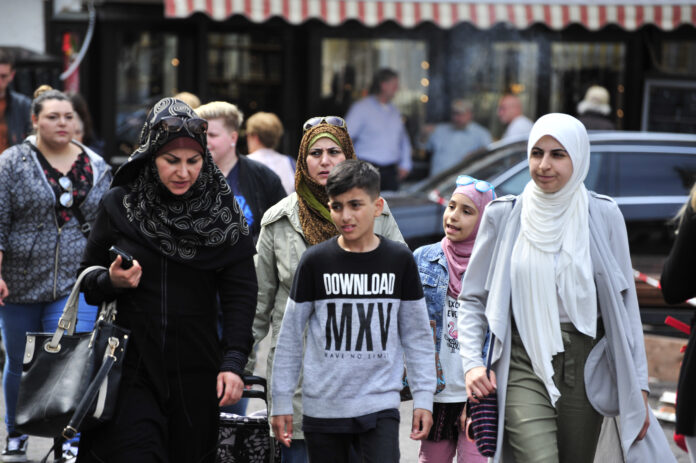A German government-commissioned report has found that a hostile attitude toward Muslims is widespread in large sections of German society and its manifestations – hatred and violence – are an everyday reality.
The Independent Expert Panel on Hostility against Muslims (UEM) was appointed after a right-wing extremist killed 10 people and wounded 5 others in an anti-Muslim shooting in the city of Hanau in 2020.
Its report, “Islamophobia — A German Balance Sheet,” found that Muslims are “one of the most pressured minorities” in Germany, and issued recommendations to political leaders, police, teachers, the media and the entertainment sectors.
The 12-member panel cited data showing that about half of Germans accept anti-Muslim statements, which “provides a dangerous breeding ground” for extremist groups.
Since 2017, Islamophobic crimes have been recorded separately in police crime statistics. Since then, 700 to 1,000 cases of insults, incitement and threats, damage to property and dangerous bodily harm have been recorded each year.
However, it is thought that this could only be the tip of the iceberg as most incidents are not reported.
Germany has a Muslim population of around 5.5 million, largely due to immigration from predominantly Muslim countries and the presence of Turkish guest workers who arrived in the 1960s and 1970s.
Subscribe to our newsletter and stay updated on the latest news and updates from around the Muslim world!
According to the Commission:
- Muslims born in Germany are widely viewed as “foreign.”
- Islam is often portrayed as a “reactionary religion” by the media.
- 90% of the films viewed by the committee presented a negative view of Muslims, often linking them to “terrorist attacks, wars, and oppression of women.”
- Women who wear the hijab face “hostility in dramatic forms.”
- The far-right Alternative for Germany party, which has a popular support base of nearly 20% nationwide, has an overtly anti-Islam platform.
The committee recommended that the government form a working group to address prejudice against Muslims and set up a centre to review complaints.
It stressed that training should be provided in day care centres, schools, police stations, government offices, media and entertainment companies to combat the negative image of Muslims, while textbooks and education plans should be reformed.
German Interior Minister Nancy Weser said: “Muslims have been part of our society for many decades. Nevertheless, they are often attacked, marginalised and excluded because of their faith. This is also the experience of people who are mistaken for Muslims.
“Approximately 5.5 million people of the Muslim faith live in Germany, the majority of whom are German nationals. So when we talk about Muslim or Islamophobia, we must not forget that it does not affect an abstract group, but concretely our colleagues, neighbors, schoolmates and friends…
“The top priority of state action is that people in Germany can live safely. I’ve always said clearly: we mustn’t and mustn’t leave room for hate and hate speech. We must stand united against all forms of racism, extremism and group-related enmity. We must stop tendencies towards exclusion and division at an early stage and resolutely stand up for the continued existence of our free, democratic co-existence…
“The task now is to seriously deal with the recommendations of this report and to take resolute action against Muslim hostility.”























